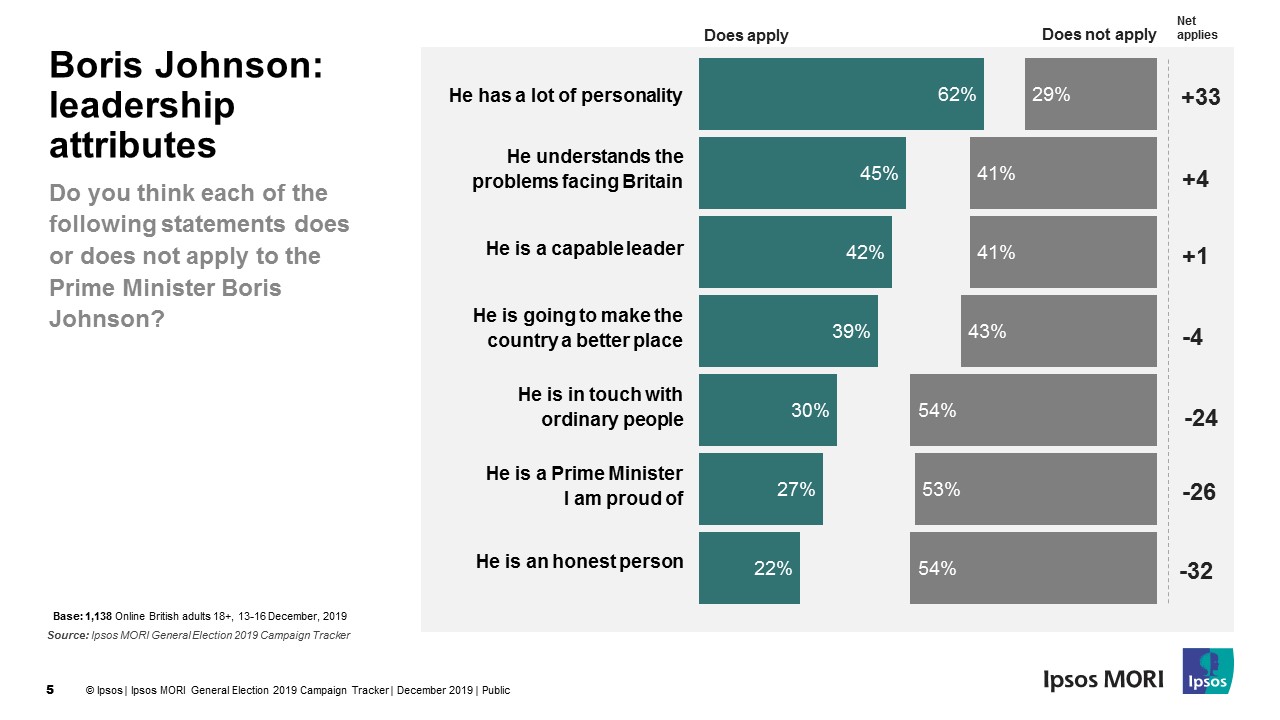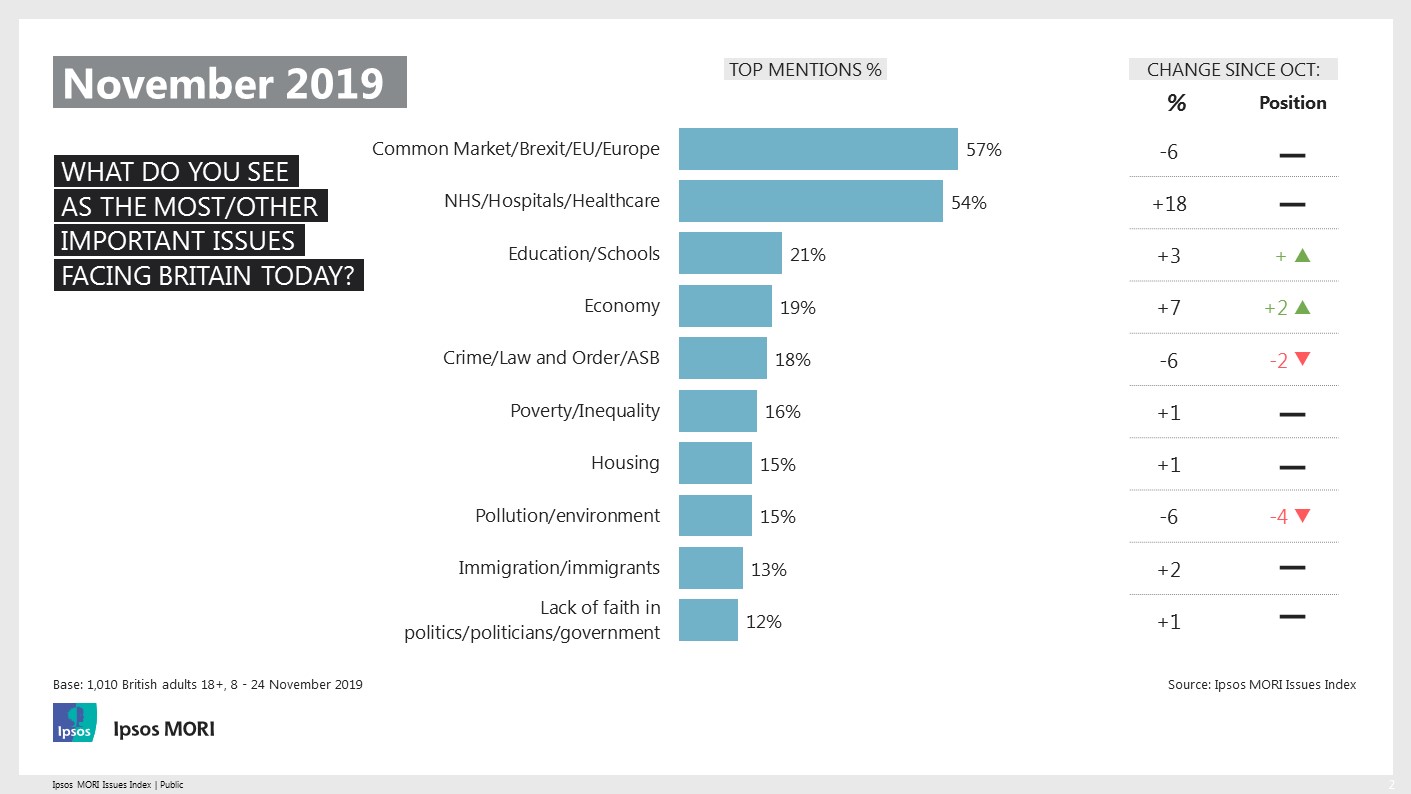Ipsos Research Highlights - December 2019
Small post-election boost for Johnson – but jury still out over his leadership and ability to deliver on policy priorities
Boris Johnson has the highest favourability ratings of the main party leaders, 37% are favourable towards Boris Johnson compared with just 20% for Nigel Farage and 19% for Jeremy Corbyn. However, he continues to divide opinion as 41% of Britons are unfavourable towards him and the majority think Johnson is not ‘an honest person’ (54%). The public do now expect the Government to take the UK out of the EU but are much more divided on whether they will get a good deal in future trade talks – 43% think it is likely the Government will get a good deal and 45% think it is unlikely.

Boris Johnson should focus on increasing NHS staff to satisfy the public
Three in five (61%) people believe that increasing the number of NHS staff should be the number-one priority regarding health and care for the Government. The NHS was a key issue for voters in the General Election and it is worth noting that, when asked before the election, the public had more confidence in the Labour Party to deliver on healthcare priorities than the Conservatives. While older generations are more focused on social care priorities, younger people tend to prioritise mental health services (29% of those aged 18-24 compared with just 17% of those 55 and over).
NHS surges to match Brexit in final Issues Index ahead of the 2019 General Election
The proportion of Britons who say the NHS is one of the most important issues facing the country has risen 18 percentage points since October to 54 per cent, close to Brexit which has fallen by six points to 57 per cent this month.

Ipsos 2019 General Election Exit Poll accurate again
The Exit Poll, published after polls closed at 10pm, predicted a Conservative majority in the House of Commons of 86 seats, very close to the final 80-seat margin of victory. It predicted the Conservative Party would win 368 seats and Labour would get 191, while the Scottish National Party and Liberal Democrats would gain 55 and 13 seats respectively. With all 650 seats now declared, the totals for each party are 365, 203, 48 and 11.
The Ipsos Almanac
The Almanac is our annual review of life, society, business, media and politics in Britain and across the world in 2019. It examines the country Boris Johnson will now lead for the next five years, with all its vagaries, concerns, and most importantly ideas about itself. The issues facing Britain remain challenging – not least an ageing population and public services needing major investment – but the British public has become significantly more liberal on moral issues over the last 30 years.
You can read the 2019 Almanac online: https://almanac.ipsos-mori.com/
In other news
Digital-only banks are winning over more UK consumers from January to June this year, 13% of new current accounts opened in the UK were digital-only fintech banks. Contactless mobile payments are also fast gaining ground with use more than doubling since 2017 – 64% of adults use contactless to pay for small daily purchases (under £30) in 2019, versus 34% in 2017.
A majority of citizens across the world feel left out of the 'normal order' of life in their country:
70% say the economy is rigged to favour the rich and powerful and 54% agree that their country’s society is broken (down 4 points).
Combining the views of industry experts and using Ipsos insights, our paper 'Slowing Down to be faster' examines the importance of investing time at the front end of the development process to drive better business results.
As ever, please do let us know what you think and I hope you find something to interest you.
Ben Page
Chief Executive, Ipsos
[email protected]

